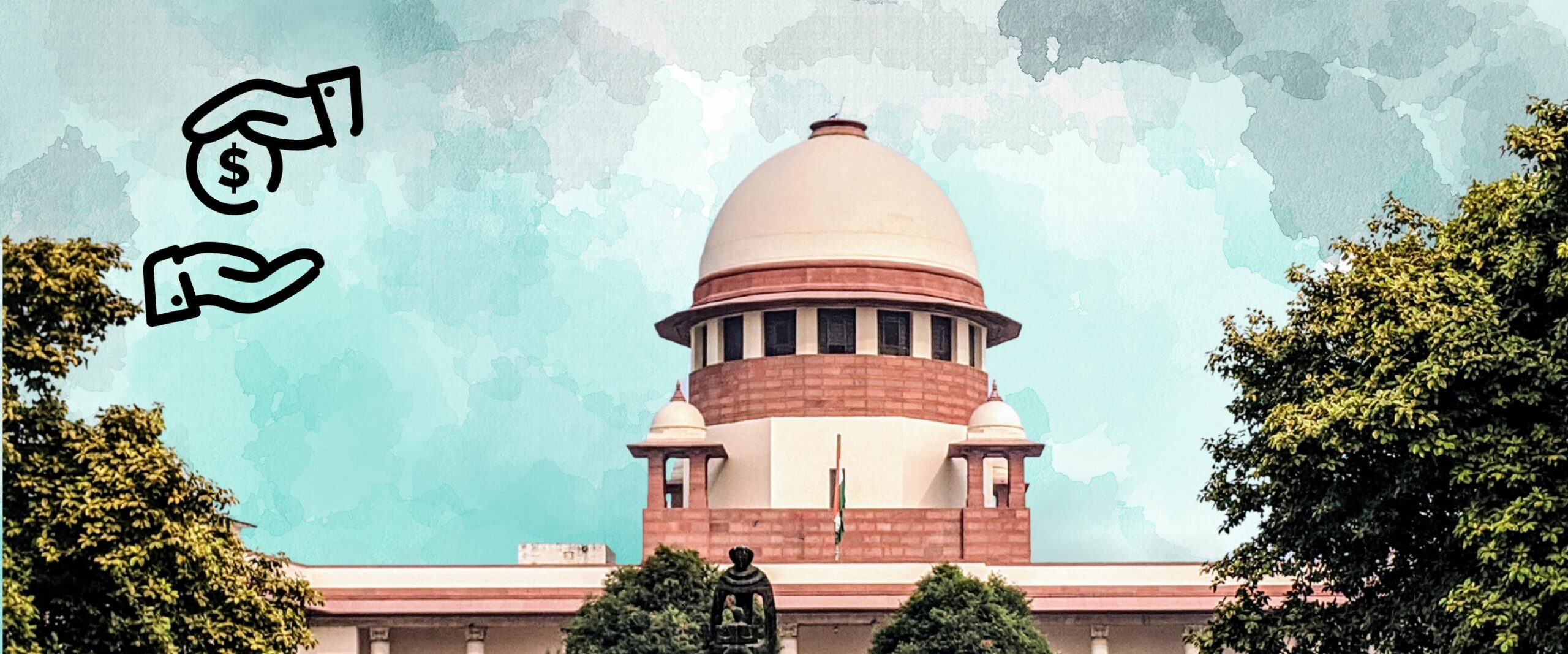Analysis
Judgment Pronouncement: Validity of Circumstantial Evidence in Bribery Cases
The Constitution Bench led by Justice Nazeer held that public officials can be convicted for bribery without direct evidence.

Today, the Constitution Bench led by Justice Abdul Nazeer held that public officials can be prosecuted and convicted for accepting bribes under the Prevention of Corruption Act, 1988 (PCA Act) on the basis of circumstantial evidence. This is evidence that supports the relevant fact or issue but does not directly provide proof.
The Bench heard arguments from the parties on November 17th, 2022 and November 22nd, 2022 before reserving Judgment in Neeraj Dutta v State (Govt of NCT of Delhi).
How Did the Case Reach the Supreme Court?
In April 2000, Ms. Neeraj Dutta solicited a bribe of ₹10000 from Mr. Rajvit Singh Sethi for the purpose of installing an electricity meter in his shop. Mr. Sethi agreed but made a complaint which resulted in Ms. Dutta’s arrest immediately after the money was handed over. She was booked under Sections 7 and 13 of the PCA Act which punishes public officials for receiving ‘illegal gratification’ as a reward for performing an official act. However, Mr. Sethi passed away before the trial began.
The Trial Court sentenced Ms. Dutta to three years imprisonment. In 2007 she appealed the Trial Court’s decision at the Delhi High Court, but was unsuccessful. The Delhi HC affirmed her conviction on April 2nd, 2009. Less than two weeks later, on April 15th, she appealed the Delhi HC’s decision at the Supreme Court.
A Bench comprising Justices R. Banumathi and R.S. Reddy referred the case to a Constitution Bench on February 28th, 2019. Due to the passing of Mr. Sethi they noted that there was a lack of direct evidence (such as his oral testimony) to rely on in the case. The reference Judgment stated that the Constitution Bench would have to decide if a public official can be convicted based on an ‘inferential deduction of guilt’. This would mean finding them guilty on the basis of circumstantial evidence, such as forensic findings.
What Did the Supreme Court Decide?
Justice B.V. Nagarathna authored the unanimous Judgment for the Constitution Bench. During the pronouncement, she clarified the difference between the offences under Section 7 and 13 of the PCA Act.
Under Section 7, there must first be an offer from the bribe-giver to the public official without a request. Upon accepting the bribe, the public official can be prosecuted under this Section. Under Section 13 the public servant must first make a demand for a bribe which is then accepted by the bribe-giver. This is an offence of ‘obtainment’.
The Bench held that the Court has the discretion to make ‘presumptions’ of fact based on the evidence available when considering whether a demand for a bribe or illegal gratification has been made. However, this presumption only stands if it is not directly rebutted.
In cases where the complainant has passed away, turned hostile or is unavailable, the trial doesn’t automatically result in an acquittal. The demand for a bribe can be proven based circumstantial evidence or evidence produced by other witnesses.
Finally, the Bench directed that the individual cases tagged with the Constitution Bench reference should be placed before CJI Chandrachud, so they may be assigned to smaller benches for final decisions.